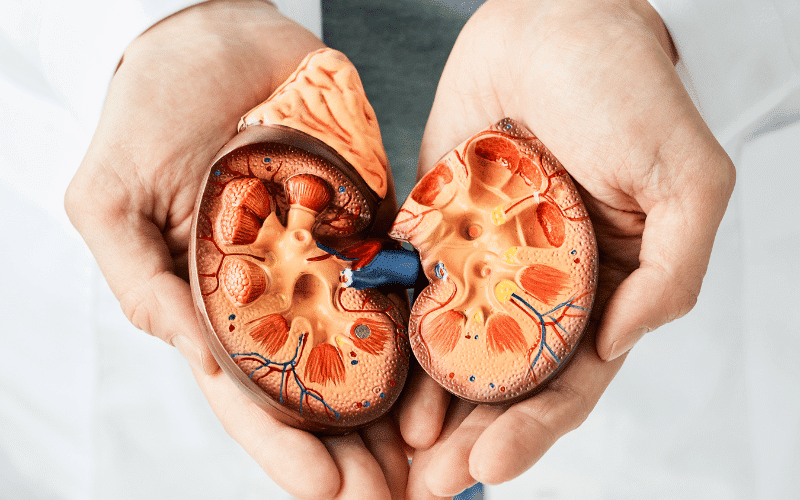FAQs

1. What are the most common symptoms of kidney problems?
Common symptoms of kidney problems include changes in urine output, swelling in the legs, ankles, or feet, fatigue and weakness, persistent urge to urinate, and blood or protein in the urine.
2. How do I know if my kidney problems are serious?
If you experience persistent or severe symptoms such as decreased urine output, severe pain in your back or sides, uncontrolled high blood pressure, or blood in your urine, consult a healthcare professional for a proper evaluation and diagnosis.
3. What tests are used to diagnose kidney problems?
Tests used to diagnose kidney problems include blood tests, urine tests, imaging studies such as ultrasound or CT scans, and in some cases, a kidney biopsy.
4. Can dehydration cause kidney problems?
Yes, dehydration can cause kidney problems, as it can lead to a decrease in blood flow to the kidneys, impairing their ability to filter waste products and maintain proper electrolyte balance. Prolonged dehydration may also contribute to the formation of kidney stones.
5. What lifestyle changes can help improve kidney health?
To improve kidney health, consider making lifestyle changes such as maintaining a balanced diet, staying well-hydrated, exercising regularly, managing your blood pressure and blood sugar levels, quitting smoking, and limiting alcohol intake.
6. Are over-the-counter pain medications harmful to the kidneys?
Over-the-counter pain medications, such as nonsteroidal anti-inflammatory drugs (NSAIDs), can be harmful to the kidneys if used excessively or for extended periods. It is important to follow the recommended dosages and consult a healthcare professional if you need to use these medications regularly.
7. How can I prevent kidney stones?
To prevent kidney stones, ensure you stay well-hydrated, consume a balanced diet with adequate calcium intake, limit high-oxalate foods, and reduce your salt intake. Additionally, maintaining a healthy weight and engaging in regular physical activity can also help reduce the risk of kidney stones.
Conclusion
In summary, we’ve explored the top 15 kidney problems, diseases, and disorders, including chronic kidney disease, kidney stones, polycystic kidney disease, glomerulonephritis, and more. Early detection and proper treatment are crucial for managing these conditions and preventing complications. By maintaining a healthy lifestyle and being aware of the symptoms associated with kidney problems, individuals can take proactive steps to protect their kidney health.
It is essential to consult with a healthcare professional if you experience any persistent or severe symptoms that may indicate a kidney problem. With the right diagnosis, treatment plan, and lifestyle changes, many kidney problems can be managed effectively, improving the overall quality of life for those affected. By staying informed and proactive about kidney health, we can work towards reducing the prevalence and impact of these conditions on individuals and communities worldwide.